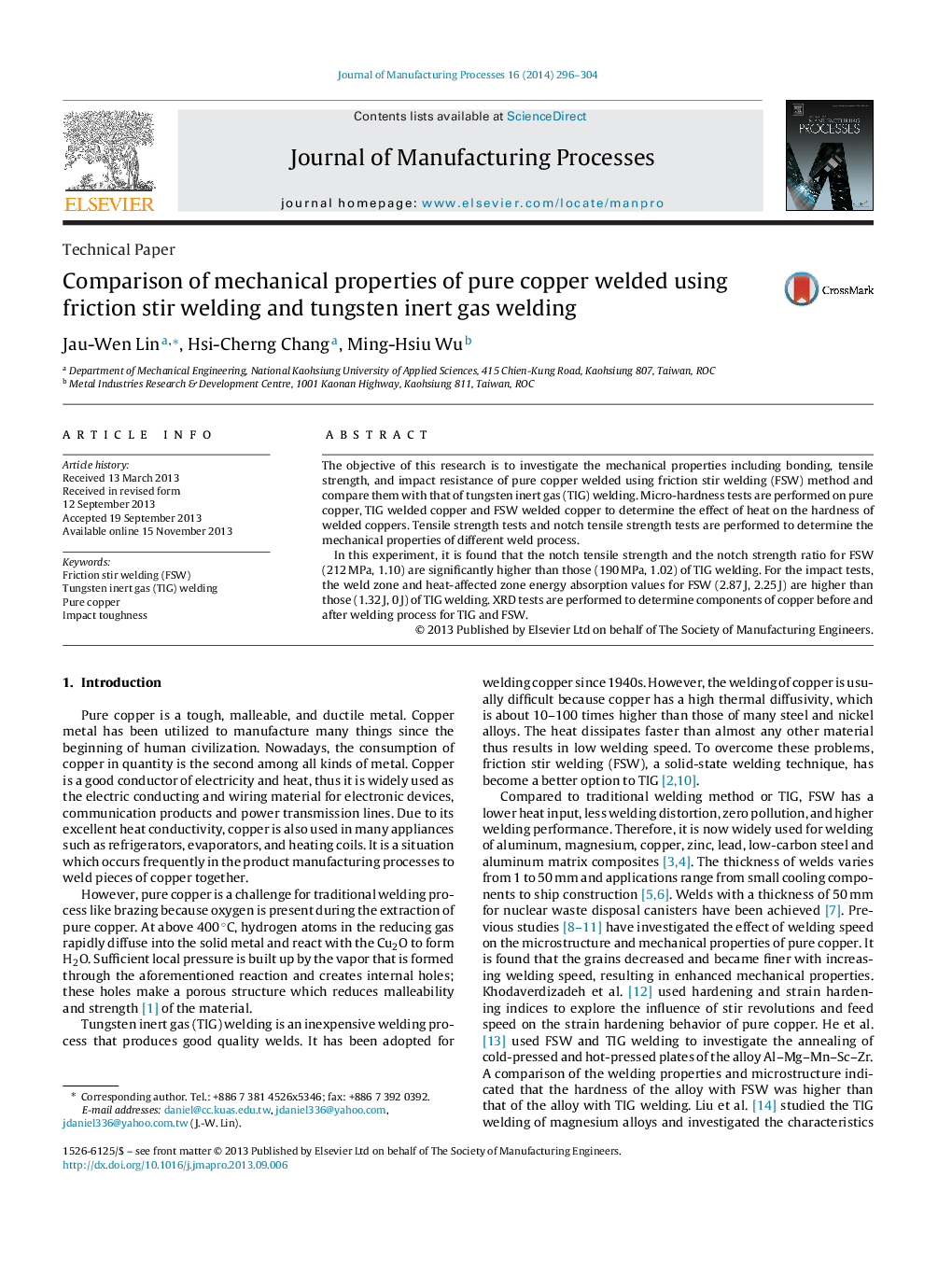| Article ID | Journal | Published Year | Pages | File Type |
|---|---|---|---|---|
| 1697133 | Journal of Manufacturing Processes | 2014 | 9 Pages |
The objective of this research is to investigate the mechanical properties including bonding, tensile strength, and impact resistance of pure copper welded using friction stir welding (FSW) method and compare them with that of tungsten inert gas (TIG) welding. Micro-hardness tests are performed on pure copper, TIG welded copper and FSW welded copper to determine the effect of heat on the hardness of welded coppers. Tensile strength tests and notch tensile strength tests are performed to determine the mechanical properties of different weld process.In this experiment, it is found that the notch tensile strength and the notch strength ratio for FSW (212 MPa, 1.10) are significantly higher than those (190 MPa, 1.02) of TIG welding. For the impact tests, the weld zone and heat-affected zone energy absorption values for FSW (2.87 J, 2.25 J) are higher than those (1.32 J, 0 J) of TIG welding. XRD tests are performed to determine components of copper before and after welding process for TIG and FSW.
